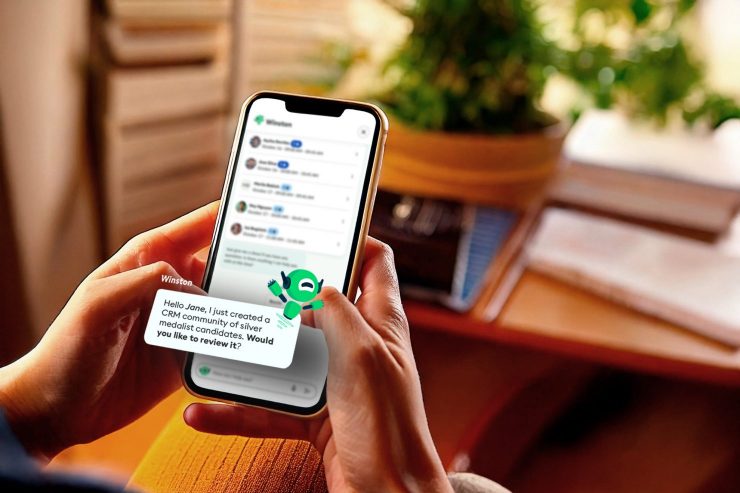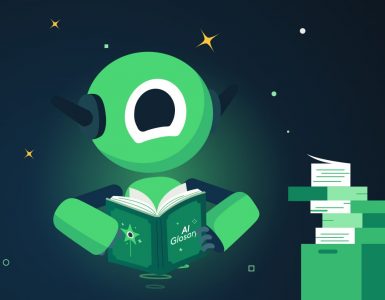Reimagined, AI-driven recruiting pipelines can help your business thrive by getting to the right candidates more quickly and streamlining workflows for hiring teams. Next-generation hiring platforms will take those capabilities further by assigning manual, time-consuming tasks to sophisticated assistants called AI agents. And just what are AI agents? They are collaborative, AI-based virtual peers that perform specific tasks autonomously, and they are the emerging key to superhuman hiring.
Working alongside human staff, AI agents modernize recruitment pipelines so teams can make better, faster hiring decisions. That improvement is vital in a world where 45% of business leaders spend most of their time on manual talent-acquisition tasks and 60% doubt their hiring decisions within six months. AI agents promise to help out, reducing that time commitment and improving the quality of hires.
In this post, we introduce AI agents, their roles in the pipeline, and their promise to revolutionize recruiting and hiring workflows. Read on to learn about the following:
- What are AI agents, and how do they work?
- Four examples of AI agents in action for recruiting
- Four benefits of AI agents that revolutionize hiring
- The agent-powered future of recruitment
What is an AI agent, and how do they work?
AI agents are self-directed software entities that work toward specific business goals without human involvement, including human-like planning, perception, and decision-making. They come in various shapes and sizes, from chatbots that answer candidate questions to advanced systems that drive cars, trade securities, or direct personalized medicine.
AI agents can streamline the recruiting pipeline by offloading repetitive manual tasks so recruiters can focus on human dimensions of the process, from nurturing candidates to making hiring decisions.
Under the hood, AI agents operate on top of large language models (LLMs) they use to understand, process, and generate language. With that semantic understanding and context, they break objectives down into subtasks, organize them into workflows, and retrieve available information to autonomously accomplish their goals.
Four examples of AI agents in action for recruiting
While it’s still early days for using AI agents to take over human tasks, they show the growing promise of young, bright trainees. Emerging potential usages will increase hiring efficiency and improve hiring outcomes while leaving key decisions to human recruiters.
1. De-duplicate the candidate funnel
AI agents could scan candidate pools to find redundant applications, such as those from multiple job boards, and de-duplicate the funnel to make sure each candidate is only considered once. Likewise, agents could help identify and manage applications by a single candidate to multiple positions, helping recruiters match each candidate to exactly one position.
2. Curate communities and attract candidates
Outreach to potential candidates requires detective work to find them and ongoing effort to build and maintain applicant communities for future roles. AI agents are well suited to the research and communication effort that goes into that networking. They could identify the places where prospects congregate online, for example, reach out to potential job seekers, and refer them into the recruiting pipeline. When a new position comes up, they could also review silver medalist candidates, add them to a community within the CRM, and generate emails to tell them about it.
3. Personalize communications for high-volume hiring
Mass recruitment generates huge numbers of applications, with little time for individual engagement with all but the top candidates. AI agents will integrate with CRM recruiting systems to automate and personalize messages to candidates, tailoring outreach to individual backgrounds, interests, and application statuses. Personalization encourages engagement throughout the hiring process, from delivering assessments to scheduling interviews.
4. Gather and summarize external data on key roles
Giving hiring teams better industry context as they prepare to fill roles is an important way for recruiters to improve outcomes, while also elevating their profiles with customers. AI agents could scan career listings for key data from competitors’ postings, such as the roles being recruited for, their geographic areas, and listed salaries. The recruiter could use that information to understand the market and recommend improvements to the hiring process.
Four benefits of AI agents that revolutionize hiring
AI agents will bring changes to the recruiting pipeline that will transform it in ways that benefit both hiring teams and candidates. They will help keep things running smoothly, and paradoxically make the hiring process more human by taking over some of the tedious parts.
1. Transform the role of the recruiter
Each repetitive task that can be automated away from a recruiter’s desk liberates workflow time and energy. Assigning AI agents to necessary work that requires little skill but lots of time could let recruiters focus effort where their expertise and creativity shine. That human-machine cooperation spreads joy, facilitates career growth, and contributes to overall employee engagement on the recruitment team.
2. Optimize the hiring pipeline with always-on monitoring
AI agents will make queries and conclusions about the health of the actual hiring platform, to help maintain high availability and responsiveness. They will proactively tune the recruiting pipeline, identifying bottlenecks and improving candidate experiences to keep workflows smooth and joyful. Automated conversations with candidates will also provide insights that add context and value to existing metrics such as time to hire, source of hire, and conversion rates.
3. Improve candidate experiences with personalization
Tailoring engagements to a candidate’s identity honors their unique skills, experiences, and aspirations to foster a sense of connection and trust. It makes the application process more pleasant and reduces friction with tailored job recommendations, encouragement, and guidance, as well as sharing curated content such as company culture videos. Personalization at this level can even differentiate hiring companies in the competition for top talent.
4. Build a smarter, more data-driven hiring funnel
Online digital footprints can provide valuable insights into a candidate’s history, interests, and personality. Rather than manually assembling those clues from sources like social media and public records, recruiters can assign the research to AI agents. With a better introduction to the candidates, recruiters can enrich their engagements with them and make better, more data-informed decisions.
The AI-powered future of recruitment
Ethical AI agents will soon be a competitive necessity in recruiting.
What are the opportunities in your world? Winston, your faithful AI hiring companion, is working up some great ideas. Meet tomorrow’s benevolent leader of all SmartRecruiters AI agents, orchestrating them to work together and separately to handle complex tasks.
A stickler for fairness, Winston meticulously checks everything twice to be totally ethical and legal. He would never let AI agents advance candidates to the next stage of the hiring pipeline, for example, humbly deferring to human recruiters. In that spirit, SmartRecruiters applauds the regulatory guardrails emerging to protect job seekers as AI agents contribute to recruiting in a responsible way:
- The EU Artificial Intelligence Act categorizes recruitment decision-making as a high-risk AI application. It mandates decisions made by AI agents to be reviewed and validated by human recruiters. Learn more about the SmartRecruiters’ perspective on the EU AI Act in our Guide to the European Union AI Act and Its Impact on Talent Acquisition.
- The Artificial Intelligence and Algorithmic Fairness Initiative of the US Equal Employment Opportunity Commission (EEOC) regulates AI agents, with a focus on civil rights enforcement.
Winston is revved up and ready to go, into a future of understanding problems (Winston likes to call them puzzles) and orchestrating a merry band of AI agents to solve them all. To learn about those plans and watch the AI agents get ready for duty, reach out to us for a demo.






